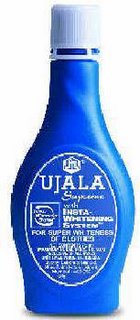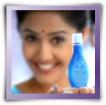Brand: T-Shine
Company: Jyothy Laboratories Pvt Ltd
Brand Analysis Count: 582
In 2017, Jyothy Laboratories ( JLL) launched a new product in the small but growing toilet cleaner market in India. Branded as T-shine, which probably is shortened version of Toilet-Shine, JLL is entering into a market dominated by Harpic.
JLL always launches the products with some uniqueness which has helped its brand beat large competitors. It launched Ujala in the liquid form, Exo with anti-bacterial properties which forced the market leaders to scramble for points of parity.
In the case of T-shine also, the USP of the brand is that it claims to be 100% organic. The Point of Difference is based on the allegation that the existing players in the toilet cleaner market use harmful acids which can cause respiratory issues.
T-Shine claims that since it is 100% organic, it is safe. The market leader Harpic's USP is the cleaning capability. Harpic has been effective in communicating that to the consumer. Having a sparkling toilet is something of pride - as per the brand communication. Domex, the other major player has been focusing on killing germs. T-Shine is trying to create a separate identity focusing on the organic nature of the product.
With Patanjali also aggressively entering the space, we will see a slew of organic variant launches in this segment.
Company: Jyothy Laboratories Pvt Ltd
Brand Analysis Count: 582
In 2017, Jyothy Laboratories ( JLL) launched a new product in the small but growing toilet cleaner market in India. Branded as T-shine, which probably is shortened version of Toilet-Shine, JLL is entering into a market dominated by Harpic.
JLL always launches the products with some uniqueness which has helped its brand beat large competitors. It launched Ujala in the liquid form, Exo with anti-bacterial properties which forced the market leaders to scramble for points of parity.
In the case of T-shine also, the USP of the brand is that it claims to be 100% organic. The Point of Difference is based on the allegation that the existing players in the toilet cleaner market use harmful acids which can cause respiratory issues.
T-Shine claims that since it is 100% organic, it is safe. The market leader Harpic's USP is the cleaning capability. Harpic has been effective in communicating that to the consumer. Having a sparkling toilet is something of pride - as per the brand communication. Domex, the other major player has been focusing on killing germs. T-Shine is trying to create a separate identity focusing on the organic nature of the product.
With Patanjali also aggressively entering the space, we will see a slew of organic variant launches in this segment.









